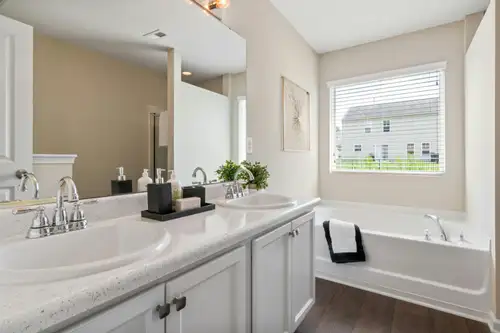
How to Maintain Your Plumbing System for Long-Term Efficiency Sep 21, 2025
Understanding the basics of plumbing maintenance can save you from potential disasters down the line. Regular inspections are a great place to start. By frequently checking your plumbing system for obvious signs of wear and tear such as leaks or rust, you can catch problems early on before they become severe. Simple observations like dampness in cabinets or unexplained puddles on the floor are telltale signs that something might be amiss.
Drains often give homeowners the biggest headaches, but they don't have to if maintained properly. Ensure your drains remain unclogged by being mindful of what you allow to go down them. Hair traps and sink strainers are small investments that can prevent big blockages. Refrain from washing down grease or oil, as these substances solidify and lead to stubborn obstructions in your pipes. Little Plumbing advises using a simple mixture of baking soda and vinegar once a month to keep your drains running freely.
Water pressure is another critical element of a healthy plumbing system. While strong water pressure can be convenient, it can also cause undue stress on your pipes, leading to leaks or bursts. Invest in a pressure gauge to regularly monitor your water pressure, ensuring it stays within a safe range—typically between 40 and 80 PSI. Adjustments can be made by attaching a pressure regulator, which helps maintain adequate flow without overwhelming the system.
Pipe insulation is often overlooked but can play a crucial role in plumbing maintenance. Properly insulated pipes can prevent freezing during cold months, which is a common cause of burst pipes. Check your existing insulation for any signs of gaps or damage and replace as needed. For those living in colder climates, being proactive about pipe insulation could save you from expensive repairs in the winter.
Water heaters require just as much attention as the rest of your plumbing infrastructure. Regularly flushing the tank to remove sediment build-up should be on your maintenance checklist. Little Plumbing recommends you check the temperature settings on your water heater to ensure they are not set too high, which can cause excessive wear and tear.
Finally, don't forget outdoor plumbing components. Hoses, irrigation systems, and outdoor faucets all require maintenance, especially before winter sets in. Detach hoses and drain them of water to avoid cracks and leaks. Inspect your sprinkler systems and repair any broken heads or lines before they become a bigger issue.
Consistent care and maintenance are key to a smooth-running plumbing system. By incorporating these simple practices into your routine, you can significantly extend the life and efficiency of your system. Little Plumbing's expert advice not only saves you money but also provides peace of mind knowing your home is protected from serious plumbing issues.
In conclusion, proactive plumbing maintenance is an efficient way to prevent costly repairs and ensure long-term functionality. Should you have any concerns or require professional assistance, reach out to the skilled team at Little Plumbing. Their expertise and commitment to quality service make them the go-to choice for your plumbing needs.
/filters:no_upscale()/media/1d0f7eb6-631c-4210-9beb-1ca59a926a7d.jpeg)
/filters:no_upscale()/filters:format(webp)/media/8e93ba2e-0345-4e7d-8a45-cfa85f20410e.webp)